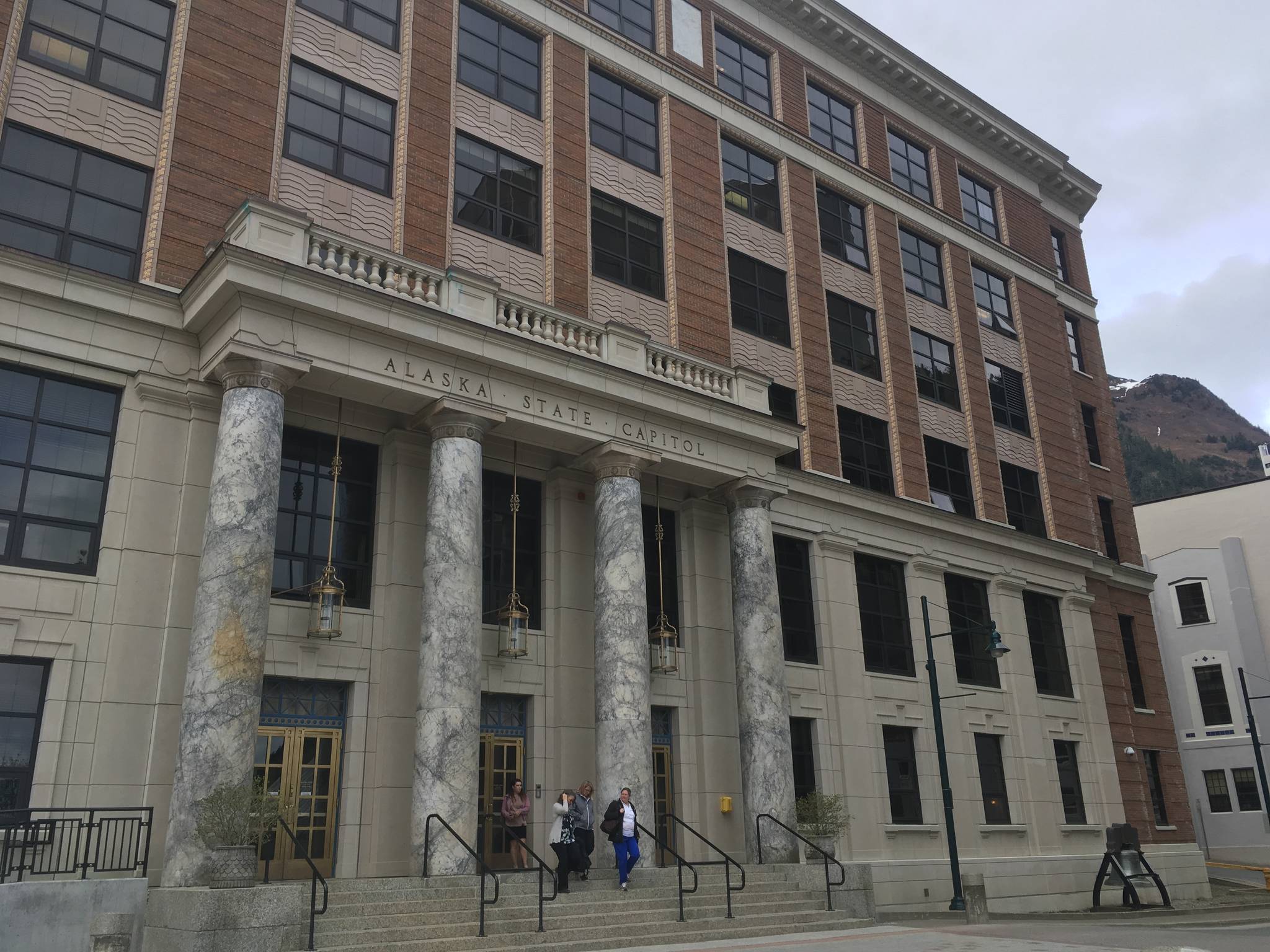Alaska’s Medicaid program may run out of money as soon as the second week of June, leaving doctors, hospitals and nursing homes with unpaid bills for legally required care.
The state will eventually pay those bills, but the gap is expected to stress the finances of small institutions across the Alaska and lead to another significant funding shortfall in 2019.
According to Pat Pitney, director of the Alaska Office of Management and Budget, the state’s $1.5 billion capital construction and renovation budget does not include enough money to cover a $20 million gap in the current fiscal year’s Medicaid funding.
The state spends an average of $13 million per week on Medicaid for the 202,078 Alaskans enrolled in the program, and after the Legislature adjourned early Sunday morning, Pitney said the program may run out of money about June 10.
“That’s unfortunate,” said Gov. Bill Walker. “The problem is, it’s going to fall on the backs of the providers. They’re going to have to wait longer for their payment.”
End of Session Press Availability from Alaska Governor Bill Walker on Vimeo.
“We’ll sort of have to figure out the process. Some of the smaller providers will have a tough time,” Walker said after the Legislature adjourned. “I do look on the positive side, though. It wasn’t as big of a gap as we’ve had before.”
No gap has had the potential to hit providers as hard, however.
At the start of this year, the Alaska Department of Health and Social Services (DHSS) said underfunding by the Legislature in 2017 and increased demand by recession-struck Alaskans had created far more demand for Medicaid than expected.
While the Legislature normally drafts a budget for the fiscal year that starts July 1, the department said it needed $93 million more for the current fiscal year, which ends June 30.
Without that money, the department said, it would not be able to pay doctors who provide Medicaid-mandated treatment, perhaps as soon as the end of March.
In response, the Alaska Legislature appropriated $45 million for Medicaid as part of a $110.2 million “fast-track” supplemental budget bill. The bill was signed by Walker in late March.
At the time, it was assumed that the remaining needed money would be in the state’s ordinary supplemental budget, passed each year at the end of the legislative session.
That supplemental budget is passed in various ways from year to year and this time was in the state’s capital construction budget.
The Alaska Senate declined to put any additional Medicaid money into its draft of the budget, leaving the task to the House. But instead of providing the amount needed by the program, the House included just $28 million.
The Senate approved the House version of the capital and supplemental budgets, leaving a $20 million gap.
Early Sunday morning, after the Legislature adjourned, members of the House said in a press conference that they wanted to add the full amount, but the Senate did not agree to the additional spending.
Medicaid spending overall has risen in recent years as the ongoing statewide recession drives more people to seek Medicaid for their health insurance.
“The reality is we tried as hard as we could to fill that entire gap,” said Rep. Paul Seaton, R-Homer. “That boat wouldn’t float with the other body.”
Members of the 13-member Senate Majority said in their own press conference that the Medicaid program spends too much, and the amount in the budget, said Sen. Peter Micciche, R-Soldotna, “sent a message to the department that over-utilization is an issue.”
He suggested that more limits on who can receive Medicaid may be an answer in the long term. The Senate approved a bill requiring Medicaid recipients to work or volunteer in order to receive benefits. The bill did not receive a hearing in the House.
“A $92 million supplemental is not something we can continue to afford,” said Sen. Anna MacKinnon, R-Eagle River, adding that the $20 million gap was a compromise.
“There’s only going to be a week-or-a-half or two-week gap,” said Senate President Pete Kelly, R-Fairbanks.
The upcoming gap is only part of the problem, however. When the state’s new fiscal year begins July 1, DHSS will be able to start covering the bills that have been missed in the current fiscal year.
Doing so will require them to spend money intended for later in the year. The situation is akin to moving up a blanket that’s too short for a bed. By using next year’s money to pay this year’s bills, officials have no choice but to open another funding gap in June 2019.
Making matters worse, the Legislature (at the behest of the Senate) provided $30 million less to Medicaid services than the state program believes it will need.
Shawnda O’Brien, assistant commissioner of the DHSS, told the Empire earlier this month that she believes the department may be able to cope with $20 million of that gap, but even if the department’s predictions hold true, it will have at least $10 million less than it expects to need in the coming year.
Add both reductions together, Pitney said, and the state is already looking at a Medicaid funding gap of between $30 million and $50 million next year.
And that’s if everything goes as expected.
• Contact reporter James Brooks at jbrooks@juneauempire.com or 523-2258.

